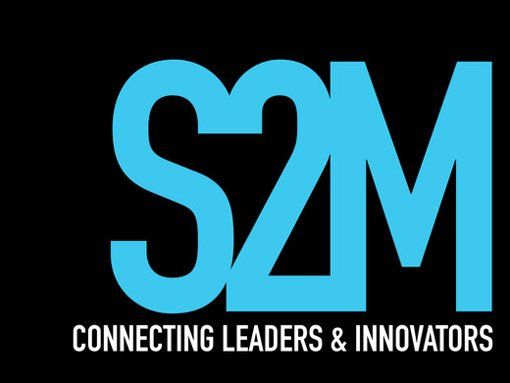What is a 'cultural fit' and why is it so important?
Just like individuals, businesses have personalities too, many define themselves in the same way as people. An employee who fits well with the company’s culture is a definite advantage. It raises job satisfaction amongst coworkers, which improves productivity. Think of a culture fit also as a values fit. It’s not only a person’s personality but whether or not they meet a company’s values. Logically, the better a person ‘fits’ with their job, the less adjusting they will have to do.

Cultural fit is a term often used in recruitment, but what does it mean for individuals in the job hunt process?
More than ever, the word “culture” feels front and centre of any workplace. It’s no longer enough for candidates to have the right skills; they must be in sync with the personality and values of a business too.
In this respect, “cultural fit” is a lot like other relationships, whether platonic or romantic. A business will be looking for candidates that share similar beliefs, attitudes, and values.
As employers place more of a premium on cultural fit, so too do prospective employees. Candidates are increasingly attracted to employers who match up with their views and mindsets.
For candidates looking to make a fresh start, we’ll take a closer look at what cultural fit is, why it’s so important, and some example interview questions you might expect from employers looking to see whether you’re a match for them.
WHAT IS CULTURAL FIT?
Cultural fit concerns the extent to which the values, behaviours and attitudes of a company align with those of an employee or candidate. Just like individuals, businesses have personalities too; many define themselves in the same way as people.
If a company spends time and money hiring people that aren’t in sync with its values and don’t get on with colleagues, then the working relationship is bound to be rocky – even if they have bags of experience and fit the job description to a tee.
So, whenever a candidate’s core values match those of a business, there’s a cultural fit that proves mutually beneficial for both parties – much like in any strong human relationship. Simply put, a cultural fit values the human qualities of candidates.
WHY IS CULTURAL FIT IMPORTANT?
There are several reasons why employers prioritise cultural fit when hiring, including:
It leads to greater employee retention
Employee turnover costs businesses a lot of money, regardless of how big they are. Employers don’t want to hire someone who’s going to leave in a few months because they aren’t a strong cultural fit, as this can have such a huge impact on their bottom line.
It creates stronger performance
Employees who enjoy their work tend to be more productive and perform at higher levels. On the other hand, those who are at odds with a company’s culture can feel stifled and dissatisfied, which causes productivity to take a nosedive.
This is where asking the right questions at an interview comes in handy. If you’re someone who needs a little guidance when it comes to your work, but the company favours a more independent approach, then you might not be the best fit for each other. Shining a light on these issues at an early stage helps both you and employers in the long term.
It leads to a more positive work environment
When there’s a culture clash, it may affect an employee negatively. And a dissatisfied employee can have a knock-on effect on others in the team, creating low morale that might be felt throughout the workplace.
It attracts the best talent
A great salary and employee benefits can be attractive to some candidates, but for others, it’s the intangible qualities of a company that may be the difference-maker. And these cultural elements are beginning to take greater precedence over things like remuneration.
A company that makes its culture clear through its website or social media allows prospective candidates to better understand what makes them tick. As a candidate, this lets you weigh up whether the company is a suitable cultural fit.
It creates a more positive brand image
Not only are employees a company’s biggest asset, but they can be their greatest spokespeople too. When colleagues sing the praises of the company they work for, it makes potential clients, customers and hires stand up and take note.
EXAMPLES OF CULTURAL FIT INTERVIEW QUESTIONS (WITH ANSWERS)
To gauge whether you’re a good fit for each other, employers are likely to ask behavioural questions that hint at your values and attitudes. Your answers here matter, and while they might be tougher than your average interview questions, coming up with effective, impressive answers isn’t impossible.
Below, we’ve provided some examples of cultural fit interview questions and how to answer them.
How would your colleagues describe you?
Here, the interviewer wants to get a sense of you as a person and an employee.
Two things can help with answering this question. First, you should research the organisation to get a better sense of its culture. Second, you should ask a colleague to describe a time when you performed above and beyond and pick out the positives in their answer.
By matching the company’s values to the positives your colleague mentioned, you can start to create a picture of how your attitudes align with the company’s.
What is it that motivates you?
Perhaps helping others on your team or delivering strong customer service gets the best out of you? Or maybe it’s the opportunity to work independently which allows you to thrive? Whatever your answer, the interviewer wants to see if you’re a fit for them. Be honest, but make sure you’re tailoring your answer to the role.
Describe a time when you had to work with someone difficult
Most of us will have encountered someone we struggled to work with. But what the interviewer wants to see here is how you dealt with the situation and whether you’re a strong team player.
When answering this question, aim to describe the context concisely, talk about the actions you took, and end on a positive by showing what the outcomes of your work were. Look to show them you have the people skills that managing conflict requires.
Do you prefer to work in a team or on your own?
Here, the interviewer is asking “are you flexible?”. While everyone has their preference, you don’t want to be seen as inflexible, especially if it’s a company where team morale and camaraderie are part of a day’s work.
Be sure to note that there are positives to working alone and as a team. Mentioning your preference is fine but point out that you’re flexible too.
Maybe you do like working alone, but by mentioning you also like participating in discussions and brainstorming with colleagues, it shows you’re an adaptable colleague who’s open to different ways of working.
Source:
https://www.sefe-mt.com/careers/blog/what-exactly-is-cultural-fit-and-why-is-it-important/





